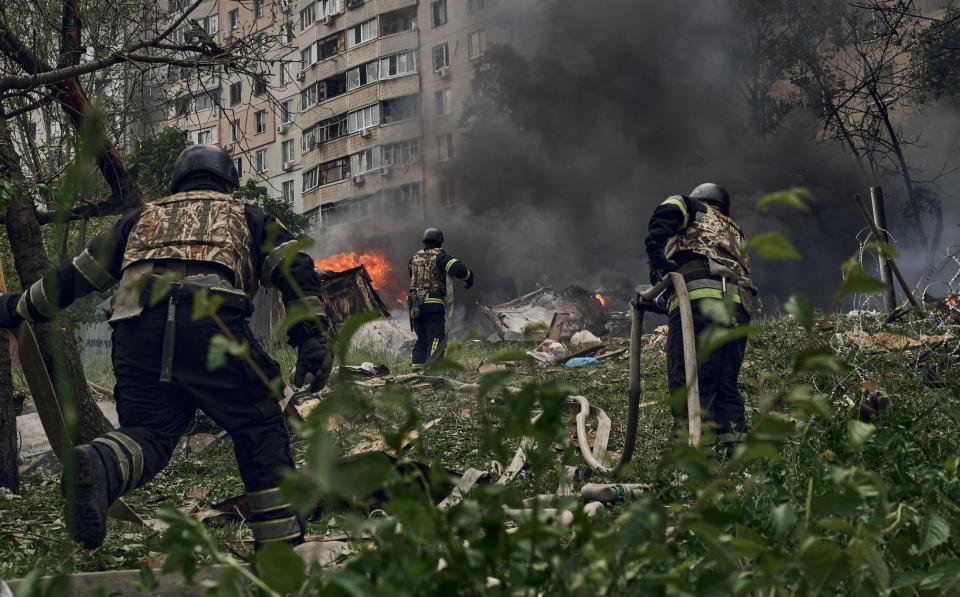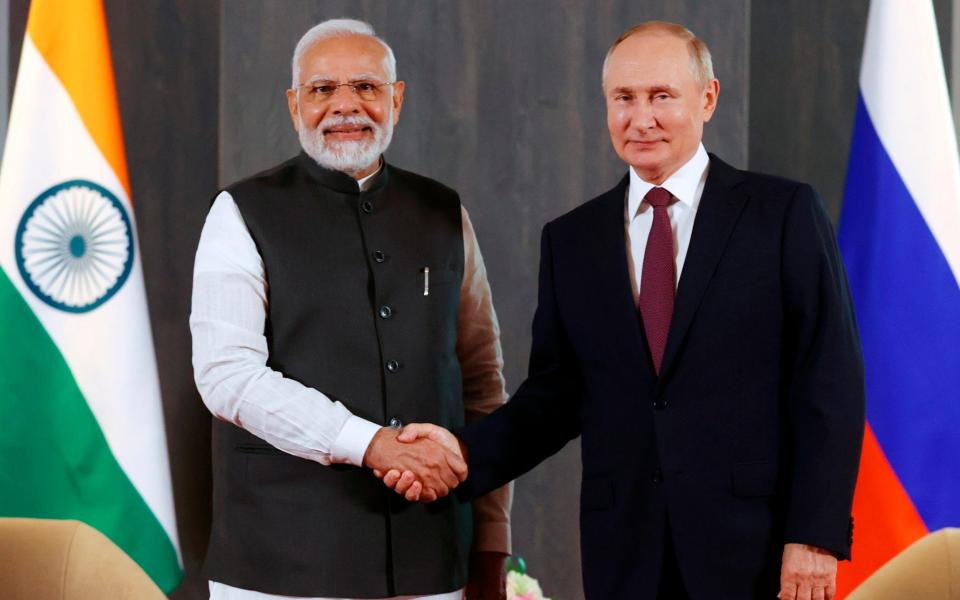Orban urges Zelensky to accept Kremlin ceasefire offer

- Oops!Something went wrong.Please try again later.
- Oops!Something went wrong.Please try again later.
Viktor Orban has made a surprise visit to Kyiv where he urged Volodymyr Zelensky to accept the Kremlin’s offer of a ceasefire.
The Hungarian leader, Vladimir Putin’s strongest EU ally, praised a Ukrainian-organised peace summit in Switzerland last month and said that a ceasefire would speed up negotiations to end the war.
“I asked the president whether it was possible to take a break, to stop the firing, and then continue the negotiations,” Mr Orban told reporters. “After all, a ceasefire could ensure the speeding up of the pace of these negotiations.”
Mr Zelensky and his Western backers have described Putin’s offer of a ceasefire as a trap that would give the Kremlin’s armies time to rest, rearm and launch more attacks. Mr Orban admitted that the Ukrainian president’s reply to the request had been “frank”.
Despite Hungary sharing a border with Ukraine, this was Mr Orban’s first trip to Kyiv since 2012. Several other European and Nato members have met Mr Zelensky in Kyiv since Putin’s invasion in 2022 and the strained ties between the two leaders were obvious in their body language.
Mr Zelensky refused to discuss the war or the prospect of negotiations with Putin during the press conference after his talks with Mr Orban. Instead, he obliquely described Hungary’s commitment to “restoring real long-term security”, and talked about their discussions on issues “that affect the lives of our people”.

Mr Orban, who took over the six-month rotating chair of the EU on Monday, and his allies in Slovakia are outliers in Europe. They have condemned the Russian invasion of Ukraine but have refused to support Ukraine’s military resistance and have said that Mr Zelensky should negotiate a peace deal.
Analysts have said that despite Mr Orban’s intervention the prospects of a quick peace deal between Ukraine and Russia are low to zero.
Mr Zelensky has refused to shift from his position that Russia needs to retreat to its 1991 borders, which means giving up occupied Crimea and swathes of captured eastern and southern Ukraine, and Putin has undermined his ceasefire offers with more aggressive speeches.
Maria Avdeeva, a Ukraine-based commentator on the war, summed up the majority mood in Ukraine after Mr Orban’s visit.
“A ceasefire could accelerate negotiations with Russia, Orban tells Zelensky,” she said. “Oh really? I thought Russia should stop killing civilians and withdraw troops from sovereign Ukrainian territory to speed up negotiations.”

As the war continues, positions are hardening across the world with countries forced to choose sides or balance increasingly precarious neutral positions. On Tuesday, Kremlin officials confirmed that Narendra Modi, India’s prime minister, would shortly visit Putin in Moscow.
This is a rare trip by a major international leader since the start of the war and Indian media reported that Mr Modi could fly to Moscow as early as next week. India still buys oil, gas and weapons from Russia.
Aleksei Zakharov, a Moscow-based expert on India, said that India was neutral over the war in Ukraine but the high-profile visit would still hand Putin a major diplomatic win.
“For Putin, it’s important to demonstrate he’s not isolated and countries like China and India are ready to move ahead with building partnerships,” he said.


